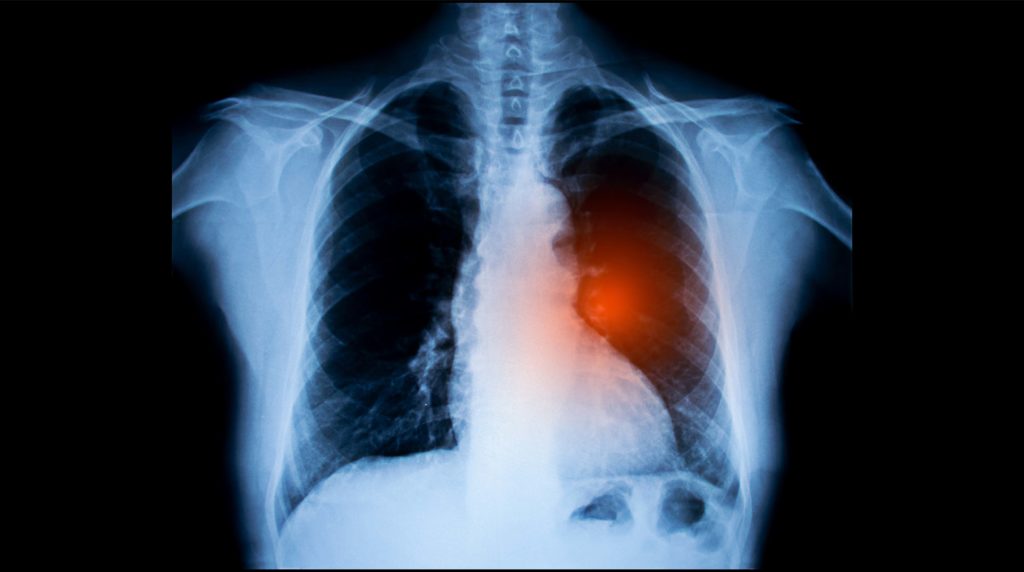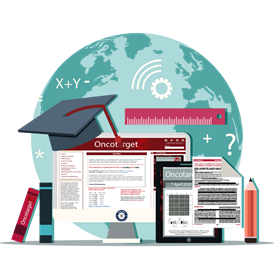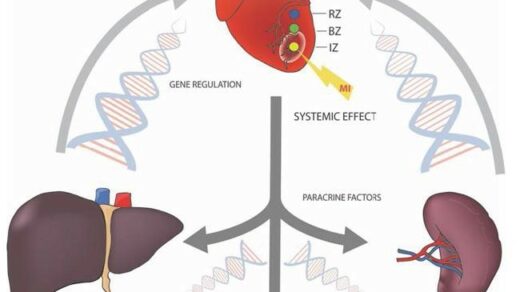In Oncotarget’s Volume 12, Issue 23, cover paper, researchers retrospectively assessed the prevalence of anaplastic lymphoma kinase (ALK) gene rearrangement among nearly 20,000 patients with advanced non-small cell lung cancer.

The identification of an actionable gene mutation or translocation in patients with cancer can give researchers a target for new drug therapies. One such mutation, found in some patients with non-small cell lung cancer (NSCLC), is anaplastic lymphoma kinase (ALK) gene rearrangement. However, the exact population of patients that present with ALK rearrangement has not been fully characterized. Identifying the subpopulation of patients who present with ALK rearrangement may lead to better overall treatment outcomes.
Researchers—from University of Mississippi Medical Center, Roche Information Solutions, Roche Diagnostics Corporation, Genesis Research, and Houston Methodist Hospital—conducted a retrospective study of nearly 20,000 patients with advanced NSCLC (aNSCLC). The researchers assessed ALK rearrangement prevalence in the cohort overall and then categorized the data using patient characteristics. Their paper was published on the cover of Oncotarget’s Volume 12, Issue 23, and entitled, “Anaplastic lymphoma kinase rearrangement prevalence in patients with advanced non-small cell lung cancer in the United States – retrospective real world data”.
“We performed a retrospective study of a database to acquire real-world clinical data on the frequency of the translocation in a large pool of patients drawn primarily from community hospitals and practices.”
The Study
This cross-sectional, observational study used de-identified data from Flatiron Health’s database, which included 19,895 patients who were diagnosed with aNSCLC in the United States between 2015 and 2019. The average age of patients was 68.5, plus or minus 10 years. The distribution of gender was nearly equal, with men comprising 50.4% (10,029) of the patient cohort, and 68.4% of patients were Caucasian. A large proportion of patients had a non-squamous histology type (80.5%) and smoking history (85.5%).
“Prevalence of ALK rearrangement was assessed overall and then stratified by patient characteristics such as age, gender, race, smoking status and histology.”
The researchers used descriptive statistics to summarize patient characteristics. Characteristics included age, gender, race, geographic location, smoking status, histology, practice type (community or academic), PD-L1 status, prevalence of ALK rearrangement and other biomarkers.
“Regardless of documented histology, a higher ALK rearrangement rate (8.9%) was observed among patients who had no smoking history compared to patients with a smoking history (1.5% ALK positivity) which represent the largest number of patients in this cohort (17,003).”
Conclusion
Results from the study concluded that ALK rearrangement was present in 2.6% of the total cohort, or 517 patients. The researchers found that ALK rearrangement prevalence varied based on the patients’ demographic characteristics. The rate of ALK rearrangement was the highest among patients younger than 40 years old, and decreased with age. Researchers found no significant difference in ALK rearrangement between men and women. However, when compared to other patients, Asian patients had a higher ALK rearrangement rate (39 out of 623, or 6.3%). Interestingly, the ALK positivity rate was greatest (9.3%) among non-smoking patients with non-squamous histology.
“In summary, this retrospective review of nearly 20,000 patients with aNSCLC and tested for ALK in the United States confirms that ALK rearrangements are found more commonly in younger nonsmokers and patients of Asian descent.”
Click here to read the full research paper, published by Oncotarget.
YOU MAY ALSO LIKE: More Oncotarget Videos on LabTube
—
Oncotarget is a unique platform designed to house scientific studies in a journal format that is available for anyone to read—without a paywall making access more difficult. This means information that has the potential to benefit our societies from the inside out can be shared with friends, neighbors, colleagues, and other researchers, far and wide.
For media inquiries, please contact media@impactjournals.com.




